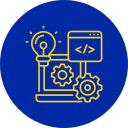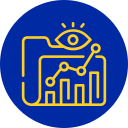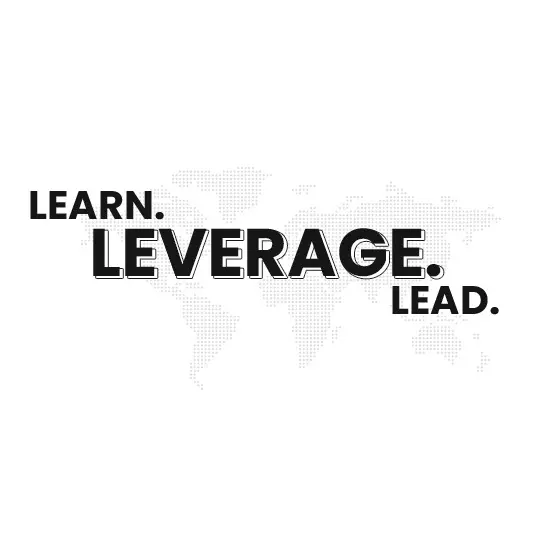
Analytics and Data Science— Understanding the Core of Analytics and Data Science
Who Should Attend an Analytics and Data Science Course?
An analytics and data science course is beneficial for individuals from various professional backgrounds who are interested in acquiring or enhancing their skills in analytics and data science. Here are some groups of people who should consider attending such a course:
Professionals in the field of data analysis: This includes data analysts, business analysts, market researchers, and data managers who want to expand their knowledge and proficiency in data analytics and gain a deeper understanding of statistical techniques, data visualization, and predictive modeling. Apart from these, following set of individuals can also attend this course:
An Analytics and Data Science Course is suitable for working professionals who have a strong interest in business and aspire to advance their careers in management or leadership positions.
Overview: Data Analytics Program
Hitting The Right Cord: Analytics And Data Science Specializations
The field of analytics and data science offers a wide range of specializations, allowing individuals to focus and excel in specific areas of interest. Here are some popular specialization areas within analytics and data science:
These are just a few examples of the numerous specializations available within the field of analytics and data science. When choosing a specialization, it is essential to consider your interests, career goals, and the industry or domain you want to work in. Additionally, keeping up with emerging trends and technologies in the field can help you stay relevant and competitive in the ever-evolving analytics and data science landscape.
Eligibility Criteria: For Analytics And Data Science
The eligibility criteria for Analytics and Data Science programs may vary depending on the institution offering the program. However, there are some common requirements that are typically considered for admission. Here are a few key eligibility criteria for Analytics and Data Science programs:
It is vital to note that the specific eligibility criteria can vary significantly between institutions and programs, so it is advisable to check the requirements of each individual Analytics and Data Science program you are interested in.
Redefine Career Growth
Pursue Live Online Analytics And Data Science Intakes
In recent years, Analytics, Data Science, Business Analytics certifications have gained significant popularity in recent years due to their flexibility and convenience. These programs offer individuals the opportunity to pursue a Master of Business Administration degree without the need to attend traditional on-campus classes. Here are some in-depth insights into distance or Analytics and Data Science programs:
In the current times, Online or E-certificate programs in Analytics and Data Science can offer a flexible and accessible pathway for individuals seeking to advance their business knowledge and careers. With advancements in technology and innovative learning platforms, the online format provides a robust and interactive educational experience. However, it is essential for prospective professionals to conduct thorough research and evaluate the program’s credibility, accreditation, curriculum, and support services to ensure they choose a reputable and suitable Analytics and Data Science program.
Delve Into Syllabus For Analytics And Data Science Degree Programs
The syllabus for an Analytics and Data Science program is specially curated by leading Tech universities, B Schools, academicians and industry practitioners to offer an in-depth opportunity to today’s age professionals.
The syllabus for the intakes may vary depending on the institution providing the program and the specific specialization chosen. However, here is an overview of the common subjects and topics that are covered in an Analytics and Data Science:
The above overview provides a general outline of the subjects and topics covered in the Analytics and Data Science- curriculum. Prospective participants should review the syllabus and curriculum of the specific Analytics and Data Science program they are considering to get a detailed understanding of the courses and structure.
Analytics And Data Science: Admission Process
The admission process for Analytics and Data Science programs involves the following steps:
Analytics and Data Science: Salary Growth Projection
| DSA Framework Category | Professional Services | Finance & Insurance | Manufacturing | Information | Health Care & Social Assistance | Retail Trade |
|---|---|---|---|---|---|---|
| Data Driven Decision Makers | 20% | 15% | 16% | 10% | 6% | 6% |
| Functional Analysts | 23% | 34% | 9% | 5% | 8% | 4% |
| Data System Developers | 41% | 14% | 14% | 10% | 5% | 3% |
| Data Analyst | 34% | 25% | 9% | 6% | 7% | 3% |
| Data Scientists & Advanced Analysts | 31% | 23% | 12% | 10% | 6% | 4% |
| Analytics Managers | 21% | 41% | 9% | 9% | 6% | 3% |
Are You an Aspiring Analytics and Data Science Professional? Here are Desirable In-Demand Skills

Programming Skills

Statistical Analysis

Machine Learning

Data Visualization

Problem-Solving

Communication

Strategic Thinking

Technical Skills

Decision-Making

Critical Thinking

Leadership

Project Management
Broaden your career with Analytics and Data Science programs specially curated to provide learners with a range of business skills and know-how. In addition to the technical skills, data scientists also need to have strong problem-solving and critical thinking skills. They need to be able to identify and solve complex problems using data. They also need to be able to think critically about the data and identify potential biases.
If you are interested in a career in analytics and data science, there are a number of steps you can take to prepare. First, you should develop your technical skills by taking courses in programming, statistics, machine learning, and data visualization. You should also gain experience working with data by doing internships or volunteering with data-related organizations. Finally, you should develop your communication skills by practicing public speaking and writing.
A career in analytics and data science is a great choice for people who are interested in using data to solve problems. With the right skills and experience, you can have a rewarding and lucrative career in this growing field. Overall, learning in-demand skills during your Analytics and Data Science can give you a competitive edge in the job market and open up new career opportunities.
Top Career Paths: After Analytics and Data Science Course
After completing an Analytics and Data Science, participants have access to a wide range of career paths and opportunities. Here are some top career paths:
The versatility of an Analytics and Data Science programs allows participants to adapt and explore opportunities in various industries and sectors. The specific career path chosen will depend on individual interests, skills, and aspirations. Jaro Education’s admission experts will guide you thoroughly to activate your career in your desired domain.
Program Prelude
Ranking Accreditations

Seeking Career Guidance or Advice?
Jaro Connect— Alumni Portal Enriching #LifeLongLearningExperience
Career Preps
Navigate Through Our Yardstick of Success
Unleash the benefits that await you with Jaro Value adds.
#CareerGrowthSimplified
+
Career Transformed
+
Programs from Diverse Domains
+
World’s Leading Academicians Partners
+
Learning Centres across India, USA & Singapore
+
Top NIRF Ranked Indian Institutes & Universities
+
Top QS Ranked Global Institutes & Universities
Companies that already trust us!
Frequently Asked Questions
Analytics and Data Science graduates often pursue careers in various fields, and they tend to earn salaries higher than those with a bachelor’s degree. Although it varies depending on factors such as industry, job function, location, experience, and company size. Here are some of the highest-paid streams in Analytics and Data Science.
- Investment
Banking Graduates pursuing a specialization in finance are Investment Bankers, who typically work for large financial institutions and are involved in activities such as mergers and acquisitions, underwriting, and financial advisory services. They often earn high salaries and receive substantial bonuses. - Management Consulting
Management Consultants provide strategic advice to organizations and help them improve their performance and efficiency. Top-tier consulting firms and MNCs are known to provide high-end packages to such postgraduates. - Private Equity/Venture Capital
Professionals in private equity and venture capital firms often earn significant salaries, along with performance-based bonuses and a share of the profits generated by successful investments. - Technology
Analytics and Data Science graduates from technology backgrounds, particularly in areas such as product management, business development, or coding, can earn substantial salaries. Technology companies in IT hubs or those in the Silicon Valley area offer competitive packages to attract top talent. - Healthcare Management
The Analytics and Data Science graduates specializing in Healthcare Management oversee various aspects of healthcare organizations such as operations, finance, and strategy, and can earn high salaries, especially in executive positions. - Strategy and Corporate Development
These Analytics and Data Science graduates are responsible for identifying growth opportunities, evaluating potential acquisitions or partnerships, and driving overall corporate strategy. People graduating with this degree can earn lucrative salary options.
The biggest recruiters for Analytics and Data Sciences in India include:
- Consulting firms like McKinsey, Bain & Company, and BCG.
- Investment banks like Goldman Sachs or JPMorgan.
- Technology companies like Google, Microsoft, and IBM.
- FMCG companies like Hindustan Unilever, and P&G.
- E-commerce platforms like Flipkart, Amazon, and Myntra.
- Banks like ICICI, HDFC, Axis, etc.
- Pharmaceutical/Healthcare companies like Novartis, Apollo Hospitals, etc.
There are numerous companies in India actively seeking Analytics and Data Science graduates, and the job market is dynamic and ever-changing. It is crucial to stay updated with the evolving recruiting landscape. Conducting thorough research and acquiring certifications from reputable institutes can provide a valuable advantage in the job-seeking process. For further information on Analytics and Data Science programs, it is advisable to visit our Analytics and Data Science page or request assistance with any inquiries. By taking proactive steps and staying informed, individuals can position themselves for success in their pursuit of an Analytics and Data Science degree.
Popular Analytics and Data Science specializations in India includes:
- Finance
- Marketing
- Operations Management
- Human Resources
- Information Technology (IT) Management
- International Business
- Entrepreneurship
Each and every specialization is profitable in its own area, Finance and Marketing has consistently been in high demand, given the importance of financial management and marketing strategies. Operations Management and Human Resources are sought after due to the growing manufacturing and services sectors and the focus on talent management. IT Management is popular in line with the rapid growth of the IT industry. International Business is gaining prominence due to liberalization and India’s growing presence in the global markets. Entrepreneurship reflects the increasing startup ecosystem. Visit our Analytics and Data Science page to gain more insight into these specializations and what they comprise of.
It is not hard to get admission for Analytics and Data Science Program. Following are the steps to get enrolled for an Analytics and Data Science:
- Research and choose Analytics and Data Science programs that suit your interests and career goals.
- Check the admission requirements of the programs you are interested in.
- Prepare for standardized tests like GMAT or GRE (only if required).
- Gather necessary documents such as transcripts, test scores, letters of recommendation, and resume/CV (If you’ve previous work experience).
- Write expressive essays or personal statements that highlight your strengths and aspirations.
- Submit online applications with accurate information and required original documents.
- If shortlisted, prepare for interviews, research common questions, and ask a friend or senior with preparation questions.
- Await admission decisions and stay in touch with the admissions office.
- Evaluate offers based on program reputation, curriculum, scholarships, and career services.
- Accept the offer, make necessary preparations, and follow provided instructions.
- To enroll for an Analytics and Data Science course you can visit our page and look out for your preferred universities as well.
Analytics and Data Science programs have experienced increased popularity over time due to advancements in technology, offering more efficient and effective learning experiences. However, the acceptance and effectiveness of an Analytics and Data Science can vary based on individual perspectives. Several factors can help assess the effectiveness of online versus in-person Analytics and Data Science programs:
- Accreditation
Employers typically value degrees from accredited institutions. It is essential to ensure that the Analytics and Data Science program you choose is offered by a reputable and accredited university or business school. - Reputation of the Institution
The reputation of the institution offering the Analytics and Data Science program plays a significant role. If the institution has a strong track record and is well-known in the business world, it is more likely to be helpful regardless of the medium – online or in-person. - Program Content and Curriculum
The content and curriculum of the Analytics and Data Science program also play a crucial role. If it provides comprehensive business knowledge, practical skills, and relevant coursework aligned with industry standards, the medium of consumption is unquestionable. - Networking Opportunities
One potential limitation of online programs is the minimal in-person networking opportunities compared to on-campus programs. However, many Analytics and Data Science programs offer networking events, virtual collaboration, and other opportunities to connect with fellow students, faculty, and industry professionals. While Analytics and Data Sciences are generally accepted, it’s important to research and select a reputable program that aligns with your career goals.
Accreditation is important as it signifies that the institution and program have undergone a thorough evaluation and meet certain quality standards. Before enrolling in an Analytics and Data Science course, here are some key accreditations to look for:
- Regional Accreditation
Ensure that the institution offering the Analytics and Data Science program is regionally accredited. It is granted by accrediting bodies that evaluate the curriculum, faculty qualifications, and student support services along with the quality and standards of educational institutions within a specific region. - Program-Specific Accreditation
Program-specific accreditations are an important factor to consider when evaluating the quality of Analytics and Data Science programs. Accrediting bodies such as the Association to Advance Collegiate Schools of Business (AACSB), the Accreditation Council for Business Schools and Programs (ACBSP), and the International Accreditation Council for Business Education (IACBE) are widely recognized and respected in the field of business education. These accreditations provide assurance that the Analytics and Data Science program meets rigorous academic standards and prepares students for the challenges of the business world.
To know more about Analytics and Data Science and the institutes/universities which are accredited, you can visit our Analytics and Data Science page.
Analytics and Data Science intake prepare you for a diverse range of careers in business, management, and administration. It equips you with the knowledge and skills needed to pursue roles such as business manager, entrepreneur, consultant, finance professional, marketing specialist, or operations manager. The program provides a strong foundation in business principles, strategic thinking, leadership, and problem-solving, making you a valuable asset in various industries and sectors. The specific career path you choose will depend on your interests, specialization, and prior experience, but Analytics and Data Science can open doors to a wide array of professional opportunities. To check the courses and universities which provide Analytics and Data Science programs, you can visit our website’s Analytics and Data Science page.
Analytics and Data Science can enhance your qualifications and marketability. Ultimately, job placement depends on several factors, including the current job market, your skills and experience, networking efforts, and the reputation of the institution. Some factors to consider:
- Market Conditions
The availability of job opportunities can vary based on the economic conditions and industry trends at the time of your graduation. - Individual Factors
Personal skills, experience, and networking abilities play a crucial role in securing a job. Your ability to effectively market yourself, network, and demonstrate your value to potential employers can significantly impact your job prospects. - Career Services
Many Analytics and Data Science programs provide career services and support to help students with job placement. These services may include resume writing assistance, interview preparation, networking events, access to job postings, and even organize placement cells. Taking advantage of these resources can enhance your job search efforts. - Reputation and Network
Institutions with strong industry connections, alumni networks, and a solid track record of successful placements may provide an advantage in accessing job opportunities. It is important to approach your job search proactively, leverage your network, and actively seek out opportunities that align with your career goals and aspirations.











